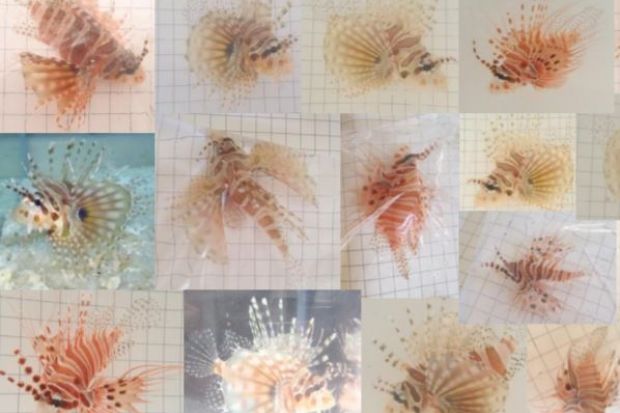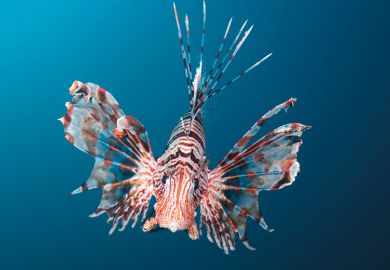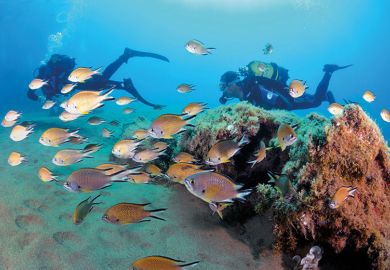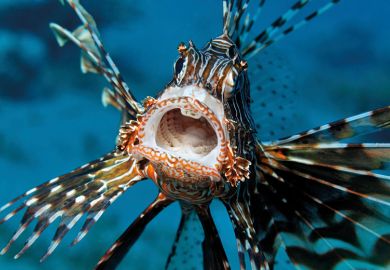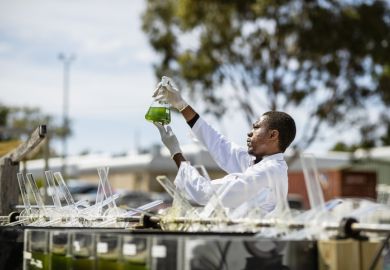A former Queensland researcher with a previous retraction to her name has been exonerated of misconduct by a Royal Society journal, despite its acknowledgement of concerns about an allegedly manipulated photographic collage that was used in her defence.
Biology Letters says it has concluded its investigations over claims that former James Cook University (JCU) student Oona Lönnstedt exaggerated the number of fish used in a 2014 study.
The article in question described a series of experiments which had found that zebra lionfish flared their pectoral fins to muster peers for a collective hunt. Cooperative hunting had been documented among marine mammals but rarely demonstrated in fish.
Questions soon emerged over whether the researchers had collected enough fish to conduct the experiments as described. In February last year, Biology Letters published an expression of concern and said it was investigating the research.
Last November, the journal published a correction based on an explanation from Dr Lönnstedt’s two co-authors. It said some of the fish had been re-used, and produced a collage of 50 fish photographs “providing evidence of the number of lionfish caught during the study”.
The correction exacerbated doubts about the research. Sceptics said the collage appeared to contain manipulated and duplicated images of the same specimens, and probably included fewer than 10 fish in total.
In a new correction published on 6 November, Biology Letters has brushed aside these claims. It says the collage “was published in error, as it does not provide evidence of the number of fish caught. The collage was not used as evidence in the investigation and the independent expert reached a conclusion before having had sight of it".
“We remain concerned about the ambiguous inclusion of the collage as part of the supplied documentation," the correction adds. "However, we are satisfied with the findings of the independent expert that no misconduct was involved in the experimental work or its reporting in the article.”
Dr Lönnstedt amassed 15 publications as a student at JCU.
Her career unravelled after she returned to her native Sweden to work at Uppsala University, where she was found to have fabricated data underpinning a 2016 paper in the journal Science. This article was eventually retracted after two investigations by Uppsala, the first of which cleared Dr Lönnstedt and found that whistleblowers had maligned her.
The researcher who originally flagged concerns to Biology Letters told Times Higher Education: "Journals and universities should not investigate misconduct cases in which they are directly involved.”
The researcher, who asked not to be identified, said he intended to report the matter to the Committee on Publication Ethics and to seek an investigation from agencies that had funded the research.
Former JCU marine physicist Peter Ridd said he had also raised concerns with Biology Letters. “I downloaded the pictures and thought, this looks dodgy as hell. It took all of about five minutes to work that out.”
Science magazine has also raised fresh questions about the lionfish research, saying “the suspicions about it resemble those that discredited the 2016 study”.
Register to continue
Why register?
- Registration is free and only takes a moment
- Once registered, you can read 3 articles a month
- Sign up for our newsletter
Subscribe
Or subscribe for unlimited access to:
- Unlimited access to news, views, insights & reviews
- Digital editions
- Digital access to THE’s university and college rankings analysis
Already registered or a current subscriber?
